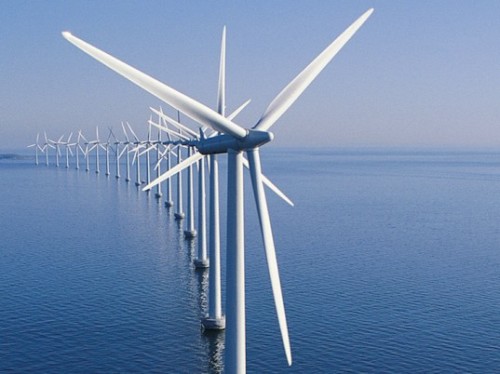Countries in Asia, Africa and Latin America and the Caribbean urgently need financial support to green their power sectors and thereby implement their national climate action plans under the Paris Climate Change Agreement.

This is a key finding of a survey conducted by the secretariat of the UN Framework Convention on Climate Change (UNFCCC) on behalf of the Nairobi Framework Partnership (NFP), which looks at what is required so that countries can implement the “Nationally Determined Contributions” (NDCs) they have submitted. A total of 79 countries replied to the survey, which was carried out by the UNFCCC secretariat through its Regional Collaboration Centres (RCCs) in East Africa, West Africa, Asia and Latin America and the Caribbean.
The RCCs collected information from Designated National Authorities, the organisations granted responsibility by their respective country to authorise and approve participation in CDM projects. The number of countries involved in the survey represents 77% of the countries supported by RCCs in the Asia, Africa and LAC regions.
Reform of Power Sector Crucial to Achieving Paris Agreement Goals
The central goal of the Paris Agreement is to limit the global average temperature rise to as close as possible to 1.5 degrees Celsius. Transitioning the power sector to low carbon is crucial to meet this goal, as generating power using coal, gas and oil is the largest source of greenhouse gas emissions which cause climate change.
The survey also found that whilst many countries are receiving some form of support to increase transparency (Measurement, Reporting and Verification) from international organisations, in most cases this support is not enough.
The survey clearly indicates that countries believe that making use of the UN’s Clean Development Mechanism (CDM), Standardised Baselines and Nationally Appropriate Mitigation Actions (NAMAs) can help them to achieve their climate action commitments.
Under the CDM, projects in developing countries earn a saleable credit for each tonne of greenhouse gas they reduce or avoid, including through projects in the power sector. The incentive has led to the registration of more than 8,000 projects and programmes in 111 countries and the issuance of over1.7 billion CERs.
Survey participants said they believed the CDM to be a mechanism that has effectively driven private sector investment in the power sector in their countries.
Through NAMAs, developing countries can request concrete support climate action. Countries that are willing to support NAMA initiatives can enter the details of that support in a special registry run by the UNFCCC secretariat, thereby enabling developing countries in need of support to be matched with relevant offers.
Asian and African Countries Most in Need of Support
The Asian and African regions were found to be the ones requiring most urgent support for the development of carbon markets and economic instruments for mitigation action.
Latin America also indicated a high need; however the lower rating in comparison with the Asian and African countries could be due to the experience already developed in the country and their potential ability to move ahead without external support.
The Caribbean region, on the other hand, does not have vast experience in developing CDM pipelines and has limited potential for a generation of emission reductions. Therefore, this could be seen as a limitation to the future implementation of domestic carbon markets.
Finally, regional differences are also shown in terms of the level of support expected. For instance, the Latin America focus is on designing the strategies needed to achieve NDC objectives, whereas Africa and Caribbean regions are more interested in receiving technical and financial support for the implementation of specific measures to curb greenhouse gas emissions in priority sectors. The Asia-Pacific region considers that building resilience to climate change is a priority over curbing emissions.
About the Survey and the Nairobi Framework Partnership
The survey was carried out after partners of the Nairobi Framework Partnership, following the Paris Agreement, decided to embrace the new overarching purpose of maximising efficiency in the provision of support to developing countries in implementing their nationally determined contributions in the areas of climate finance, technology transfer and capacity-building for mitigation by creating enabling environments at national level, regulatory mechanisms and carbon markets, including the CDM.
The Nairobi Framework Partnership is comprised of UNFCCC, United Nations Development Programme (UNDP),World Bank (WB), African Development Bank (AfDB), United Nations Environment Programme (UNEP), UNEP DTU Partnership, United Nations Conference on Trade and Development (UNCTAD), International Emissions Trading Association (IETA) and Asian Development Bank (ADB).
Coordinating organisations are Latin American Energy Organisation (OLADE), Inter-American Development Bank (IDB), LEDS Global Partnership (LEDS) and Development Bank of Latin America (CAF).
